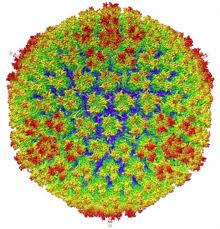Among the numerous complex contributors to obesity, it has long been wondered whether infections, such as viruses, could be a contributor to the obesity epidemic.
In fact, it turns out that a common cold virus, adenovirus-36 (AD-36), has a link with obesity.
Antibodies to AD-36 (showing evidence of previous exposure) have been found in 30% of adults with obesity, compared to only 11% in normal weight adults. In kids, the story is similar, with 22% of kids with obesity carrying AD-36 antibodies, versus only 7% of kids with normal body weight.
Also interestingly, in parallel with the rise in obesity, AD-36 antibody positivity has increased from 7% in 1992-1998 to 15-20% in 2002-2009.
There are a number of mechanisms by which AD-36 may induce obesity, including:
- Induction of fat cell formation (in scientific terms: adipogenesis from stem cells via PPAR-gamma signalling pathways)
- Inflammation induced by the virus (release of inflammatory chemicals has a number of effects on human physiology which contribute to obesity)
Interestingly, while people exposed to AD-36 have a higher rate of obesity, they seem to also be protected from metabolic complications associated with obesity, such as type 2 diabetes and
fatty liver. Mechanisms include:
- increased uptake of sugar into cells (increased GLUT4-mediated glucose uptake)
- an increase in adiponectin, which is an anti-inflammatory hormone made by fat
So, the ultimate success would be if we could vaccinate against AD-36, but also harness its power to decrease the risk of metabolic syndrome. We are not close to either goal currently, but empowered with this knowledge, research is underway with both of these goals in mind.
Follow me on twitter! @drsuepedersen












